#the gulls fly inland
Explore tagged Tumblr posts
Text
"...at any moment it will become love." @katehandheld #thegullsflyinland #parisinjuly2024
It’s a constant mystery to me (and many others, I know) why some books/authors fall out of favour whilst others continue to be read; and I’m always thankful for the wonderful publishers (mostly indie) who rediscover them for us. Today’s book is one such, and reviewing it is a bittersweet experience, as it’s the last release from lovely Handheld Press, who’ve brought us some excellent titles…
0 notes
Text
One shot nº3 for the Silmarillion, solo for a gull
There is a gull circling the sky above Imladris, stark white against the blue sky. Elrond looks at the bird, wondering how it got lost so far inland; it probably followed the rivers and is now trying to find its way back, he muses, following the shape in the sky, restless.
“I never liked gulls,” a voice say, starting Elrond out of his thoughts. Celeborn is standing next to him, looking at the bird with a strange expression. “They’re so loud and dim.”
Elrond shrugs, his eyes drawn back to the gull. “I’m concerned for it, I wonder if it’ll find the sea again, its nest, its family. I hope so…” he looks at the settelment sprawling in the valley under them, half tents and half buildings covered in scaffoldings.
“Glorfindel needs you in the main hall,” Celeborn says after a beat, explaining his presence in the remote clearing. “Better not let him and Erestor unsupervised for too long, they might throw the walls down.”
Elrond quirks his mouth, already on his way to the settlement. “They wouldn’t dare upset me, you know how they can get.”
Celeborn snorts at that, the only sound he makes as he follows Elrond on the leaves covered trail downhill.
The gull is still there the next day, flying above the river and occasionally letting out a loud, laughter-like cry. Elrond finds himself distracted by the bird, looking up at it and smiling wistfully. A part of him missed this sound, omnipresent in his oldest memories. Celeborn looks at him but stays silent, for which Elrond is grateful; his friend and ally can be cutting with his words, despite his best intentions. It must be because he is Sindar, Elrond reflects, more used to the noises of the forest than the cry of seabirds and rushing of waves.
Time passes and the hidden valley turns from a refugee camp to a small town huddled around a main house, and Elrond wonders if that is how Sirion started, too, an Age ago. He can spy the gull in the sky, from time to time, and he knows somehow it is still the same bird he saw what must be a decade and a half ago. Its presence is oddly comforting, despite the strangely long life this gull seems to have been granted with, and Elrond catches himself looking forward to the next time he’ll hear the laughing cry echo in his valley.
Celebrorn brings Galadriel and his daughter to Imladris, now that the danger is kept at bay, and Elrond barely avoid making a fool of himself at the sight of Celebrían. Celeborn smirks imperceptibly at him and, from high above, the gull shrieks its laughter.
Years flow by, and Elrond longs for his home, his safe hidden valley. On the desolate plains of Mordor, he often looks up, hoping to see a gull through the thick black cloud that choke the the stars, to hear a now familiar laughter over the shrieking of orcs. He knows this is foolish, a child’s dream, but this habit keeps him going even when the star of High Hope cannot pierce the darkness of Mordor.
Sauron is defeated. The High-King is fallen. Elrond throws the darkened circlet to the ground when someone brings it to him, asking if he will take the High-Kingship. That night, he looks at the star of High Hope, the star of Eärendil, until he can see the light of his father’s ship printed on his lids when he closes his eyes. He laughs then, bitter and pained, until he is sobbing and cries himself to sleep. In his dreams, he sees the gull pecking at the crown on the floor of his tent, then flying away with a disdainful shriek.
Imladris is almost painfully beautiful after years of dust and smoke, blood and darnkness. Elrond feels a weight lift from his shoulders as he walks through the invisible border, and a familiar cry greets him. He looks up at the gull and smiles despite his tears, waves wildly at the bird as he laughs back at it. His men must be staring at him but Elrond doesn’t care, nothing exists outside of the bird flying above him. He is finally home!
It took Elrond much time and more courage than he thought possible, but he asked Celebrían in marriage. She said yes. Elrond is still pinching his arm on the day of the wedding as he dons his best robes, afraid to wake up from this beautiful dream.
It is a clear summer day, and the whole valley is fluttering with animation. It is not everyday its lord is getting married, after all.
Elrond walks under the trees, where Celebrían and a few, close friends and relatives are waiting for the him. Glorfindel stands at his side in stead of his blood family, and Elrond feels a small pang of regret. A shrieking laughter makes the small party start and, even as Celeborn’s face breaks in a frown, Elrond smiles at the strange but now familiar and comforting sight of the gull circling above the clearing. He closes the rest of the distance to Celebrían with a spring in his steps and takes her hands in his to exchange their vows.
The wedding feast is a grand affair, but Elrond is too busy smiling at Celebrían to really notice what is going on around them. As soon as the sun sets and the evening star rises, they slip away to their room, followed by good natured cheers and the gull’s cry. Celebrían looks at it with a bemused smile, but Elrond has already told her of the friendly bird that looks over the valley, and she forgets about it as the door closes behind them.
Life in time of peace is sweet and soft, like the last strawberries of the season. Elrond settles happily in his new, married life, marvelling each morning he wakes up next to Celebrían. He still looks our for the gull, but it becomes less and less frequent, and he never sees or hears it again. He wonders if the bird died at long last, and briefly mourns its disappearance, until the joy of his impending fatherhood sweeps any other feeling away.
The twins grow up to the tale of a white bird bringing them gifts for their begetting day and various festivals, as Elrond leaves little trinkets on their windowsill. When they are too grown to believe in the friendly gull anymore, they take to hide gifts for their little sister instead, telling her the tales Elrond invented for them. Elrond reflexively looks at the sky, after telling these stories to his children, and Celebrían gently squeezes his hand. He looks at Gil Estel then, and foolishly hopes his father is watching him from above.
The peace could only last so long, and Elrond’s dream shatters the day his sons bring back Celebrían more dead than alive. He heals her body as best as he can, stitches her wounds and mends her broken bones with Song. But her fëa is beyond his skill to heal, and Elrond weeps as he packs his beloved’s clothes and favourite items. At night he finds himself standing on the balcony of their too empty room, crying as he looks at the star of High Hope. But no sleep comes to him, no comfort can reach him through his sorrow.
The docks of Mithlond are bustling with activity, sailors readying the ship, families and friends saying their goodbyes, passengers boarding. Elrond is blind and deaf to that, as he embraces Celebrían’s frail body for the last time in who knows how long. Their children are crying, Elladan and Elrohir stubbornly trying to hide their tears as they support a sobbing Arwen. Elrond looks away when his daughter bids her farewell to her mother. He doesn’t know what they spoke of, but their embrace has something final to it, and he finds himself staring at the gulls flying overhead, making a strangely comforting racket.
The time has come at last, and Celebrían is helped on the ship by a friendly Teler sailor who promised to look after her until she reaches her relatives in Valinor.
Even as his children desperately wave their hand at the ship, Elrond cannot bear to look his wife, the love of his life, disappear from his sight. Instead, he looks at the gulls again, and is startled to see his gull flying amongst the other birds. He is sure it is the same bird, large and pure white, with a familiar cry. The gull swoops low, almost catching his hair, before flying away behind the ship. Elrond smiles despite himself, as he understands at last. “Look after her until I come!” he shouts to the gull, his voice nearly drowned by the sea wind. The gull loops back a little, shrieking, and disappears after the the ship. Elrond breaks into heavy sobs then, but he knows Celebrían won’t be alone.
As he guessed, the gull never visits Imladris again, and Elrond is comforted by its -her- absence now. He focuses on his children, on his people, on anything but the gaping void left by Celebrían’s departure. Each night, he looks at Gil Estel raising, and finds comfort in its light, as familiar to him as the cry of the gull.
Time passes and Darkness rises again. Elrond is tired but he does what he has to do. He mourns alone for Arwen, and he now knows what his daughter told Celebrían all these centuries ago, this last goodbye she had foreseen in time. Elladan and Elrohir will stay, and Elrond worries for them, but he is too tired, too worn out to stay, and his heart aches for a land he never saw but knows will be home, for Celebrían awaits him there.
When Elrond sails at long last, accompanied by Galadriel and two Hobbits, he keeps his eyes on the horizon, searching for a white speck in the sky, his ears straining for a familiar cry. He finds nothing until the shores of the Blessed Realms are less than a day away, when a gull perches on the mast of the ship and laughs happily. Elrond laughs too, tears in his eyes, but the bird is gone before long.
When he sets foot on the docks of Tol-Eresseä, Elrond is nearly knocked over by Celebrían, as she launches herself in his arms. They kiss, and they cry, and they laugh, reunited at last. But then Galadriel is there, waiting to greet her daughter, and Elrond reluctantly lets his wife go. As he turns away from the reunion between mother and daughter, he sees the woman standing on the dock, barefoot and wearing a simple white dress, her face like a mirror of his. Elrond takes a few steps toward her, almost stumbling, and stops in front of her. The woman smiles, hesitant yet warm.
“Mother?” Elrond asks, one hand outstretched between them and suddenly feeling like a child again.
Elwing nods, reaching for his hand, “My son,” she says, her voice rough with emotion.
Then, before he can say more, he finds himself with the gull perched on his shoulder, pecking at his tangled hair. And Elrond laughs, soon joined by the gull.
Also on AO3: https://archiveofourown.org/works/58728745
33 notes
·
View notes
Text
Spectember Day 5) Flying Eurypterid... I had a lot of fun drawing this one. And really like how it turned out.

The Rocketeer Armora is a species of Eurypterid native to the southern continent of my world. Its name comes from the way it shoots itself out of the water to escape predators. This method of rocketing out of the water also helps it catch prey above the surface of the water, such as any large gulls and pterosaurs. The Rocketeer Armora lives in the many giant rivers and lakes on the continent as well as hanging about the coastal regions and many islands in the continent inland sea...
75 notes
·
View notes
Note
Happy Blorbo Blursday!
How would your OC or MC act on the beach at night?
author disclaimer: I have only been to the beach on the coast of the Pacific Northwest region of the USA, so in my mind the beach is typically Cold, Windy, and Wet lol.
Morianon is a bird dude, so he is spending his beach night catching that wind and flying around with the gulls, who are probably quite baffled by his presence. He might swoop over the waves too, though it's probably too cold for him to dive in. He's more of an inland water bird haha. He would also probably visit the tidepools to see if he can grab a quick snack, since he eats fish, and I'm sure he would be curious to try a crustacean or crack open a clam or mussel. He's definitely going home with a pocket full of seashells and a few nice rocks.
Evarin would enjoy a moonlit walk along the tide line I think. Mostly just enjoying the view. She might take the time to meditate or at least sit and breathe and try to connect with the natural energy around her. She is also going home with a pocket full of small rocks, if they happen to catch between her toes. They're like little gifts from the mountain goddess she worships.
6 notes
·
View notes
Note
6. Favorite character in all of Tolkien's work?
Legolas. I realize this is probably the most transparent answer of all time and you probably wanted something more interesting, but I love his unflaggingly upbeat spirits in the midst of such a bleak quest, and his sassiness, and I love that he's at once one of the more chill elves we meet and yet also ready to throw hands at a moment's notice. He's just an utter DELIGHT...and then when you throw in the heartbreak of the Sea-Longing (which gets me in ways that I cannot even articulate and always has) and the fact that he stayed despite that until all his friends were gone except for Gimli, whom he took with him omfg—! Like, not to sound like Gimli on main, but how do you look at this utterly absurd elf and NOT love him?
HOW DO YOU NOT WEEP AND FALL IN LOVE AT THIS:
And now Legolas fell silent, while the others talked, and he looked out against the sun, and as he gazed he saw white sea-birds beating up the River. 'Look!' he cried. 'Gulls! They are flying far inland. A wonder they are to me and a trouble to my heart. Never in all my life had I met them, until we came to Pelargir, and there I heard them crying in the air as we rode to the battle of the ships. Then I stood still, forgetting war in Middle-earth; for their wailing voices spoke to me of the Sea. The Sea! Alas! I have not yet beheld it. But deep in the hearts of all my kindred lies the sea-longing, which it is perilous to stir. Alas! for the gulls. No peace shall I have again under beech or under elm.' 'Say not so!' said Gimli. 'There are countless things still to see in Middle-earth, and great works to do. But if all the fair folk take to the Havens, it will be a duller world for those who are doomed to stay.'
Add to that the fact that I've been obsessed with elves literally forever, I mean before I ever read LotR, and he was The Elf of the Fellowship...I mean, I would have fallen in love with him anyway on that basis alone, because he's The Elf we get to spend the most time with, but the fact that his introduction is just "a strange elf clad in green and brown"...that's it, Frodo? That's all you can say about him? He's "strange" and dressed like a tree? LMAO. Come on, he's ridiculous from the moment we meet him, of course I love him. And then "I go to find the sun"? MY GODS. THIS FUCKER. YES.
And then him and Gimli? Who absolutely should not be friends AT ALL, but end up being so fucking entwined that they sail to Valinor forever...!? Who go from zero-to-sixty in like two weeks, and are then so ride-or-die that they're even ride beyond death, fuck. "Yet you comfort me..." / "He stands not alone!" / "While Gimli lives, I shall not come to Fangorn alone..." / "Where you go, I will go..." / We have heard tell that Legolas took Gimli Glóin's son with him because of their great friendship, greater than any that has been between Elf and Dwarf. If this is true, then it is strange indeed: that a Dwarf should be willing to leave Middle-earth for any love, or that the Eldar should receive him, or that the Lords of the West should permit it...
HOW DO YOU NOT LOVE THIS MOTHERFUCKER.
(And that's not even adding-in my own personal interpretation of Mirkwood as a bunch of half-feral unhinged cryptids.)
#i have a normal amount of feelings about mirkwood elves#anyway thank you SO much for asking and letting me rant about my favorite feral tree-boy#legolas#lotr headcanon#lotr meta#lotr#elves#ask meme#lotr 20 questions#favorite characters#this ship sails itself all the way to valinor#gimleaf
137 notes
·
View notes
Text
'Look!' he cried. 'Gulls! They are flying far inland. A wonder they are to me and a trouble to my heart. Never in all my life had I met them, until we came to Pelargir, and there I heard them crying in the air as we rode to the battle of the ships. Then I stood still, forgetting war in Middle-earth; for their wailing voices spoke to me of the Sea. The Sea! Alas! I have not yet beheld it. But deep in the hearts of all my kindred lies the sea-longing, which it is perilous to stir. Alas! for the gulls. No peace shall I have again under beech or under elm.'
'Say not so!' said Gimli. 'There are countless things still to see in Middle-earth, and great works to do. But if all the fair folk take to the Havens, it will be a duller world for those who are doomed to stay.'
Legolas: being Dramatic(tm) and Melancholy(tm) a common characteristic of elves
Gimli: “You are an idiot but the world would be a lot less wonderful without you and your idiotic ways in it” ❤️
68 notes
·
View notes
Text

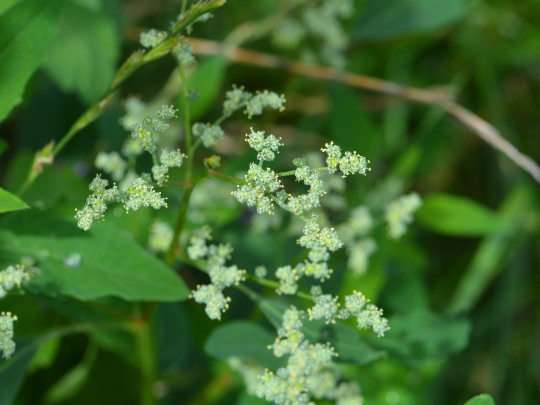
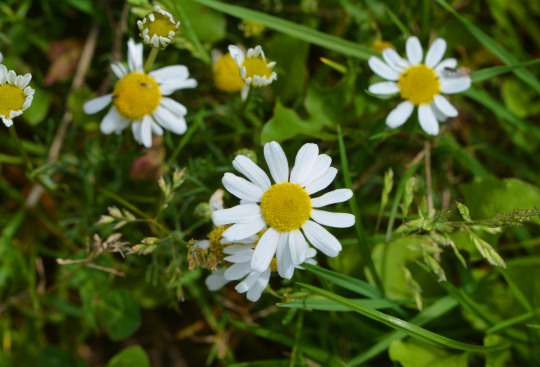
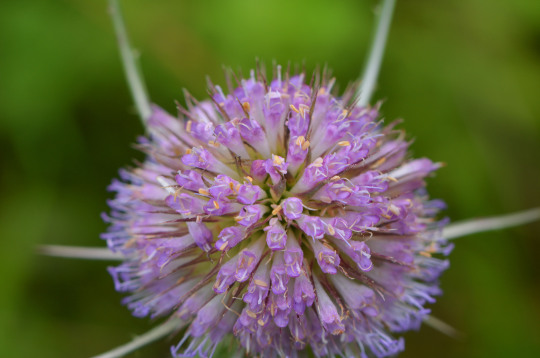
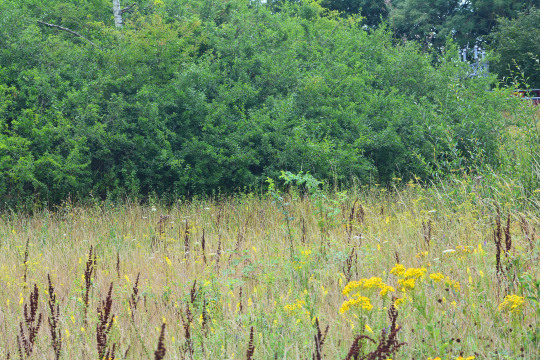

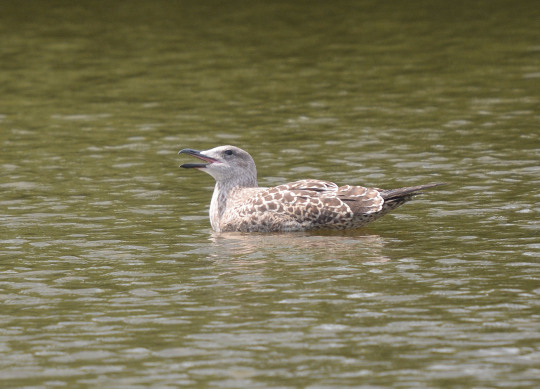
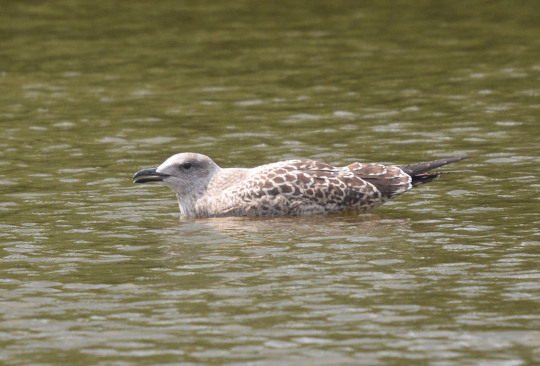

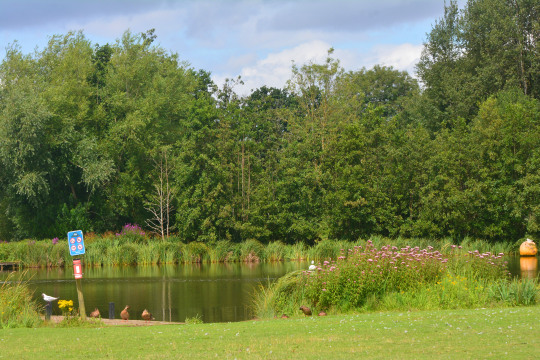
01/08/23-Lakeside and home: Birds, flowers and views
Photos taken in this set are of: 1. A Cormorant on Concorde lake which was thrilling to see and very much in keeping with the seeing unusual things at Lakeside so far this week like the wasp spider mentioned in my previous post about it and insects seen today, I occasionally see Cormorants here more so in the autumn/winter months so it was interesting to see one today. It was nice to get good views of it swimming among the Great Crested Grebe chicks, although very much an inland bird too it was evocative of the coast seeing this dashing bird. 2. Plant across the road out the front, possibly lamb quarters. 3. Chamomile out the front which looked pretty. 4. One of a few teasels which looked splendid and full of colour. 5 and 10. Views at Lakeside. 6. Mallards. 7 and 8. A juvenile gull it was great to see on beach lake I believe a Lesser Black-backed Gull as it was calling to the adult of this species circling above, the latter the one I enjoyed flying last night here. 9. Roses on the bush out the front.
Moorhen, Greylag Geese seen well, an intimate and cheerful view of a Song Thrush, Starlings heard and seen well and House Sparrow were other key birds seen at Lakeside today, with Jackdaw, Goldfinch and Collared Dove including moody views of them enjoyed at home. Purple loosestrife, water mint, wild carrot, dock, bird vetch, agrimony and sow thistle including swathes of it looking nice in the landscape, red bartsia, broad-leaved clover and bird's-foot trefoil were other flower highlights at Lakeside with fresh red deadnettle also enjoyed out the front on my walk.
#lakeside#lakeside country park#uk#happy#red deadnettle#photography#birdwatching#photos#cormorant#moorhen#great crested grebe#water mint#purple loosestrife#colourful#song thrush#starling#jackdaw#home#world#tuesday#walking#walk#bird's-foot trefoil
10 notes
·
View notes
Text
The Kite Artist

There are some coastal towns which are famed amongst tourists for their postcard-perfect views, beloved by families for their sandy beaches and amusement arcades, or renowned by surfers for their fearsome five-foot waves, but the bay around St Triston has always been known for its artists.
Every summer, they flock like gulls to the apartments that cluster in a horseshoe looking out onto the sea, and spend their days soaking in the golden light that rises over the harbour. They travel here from miles away to make their own attempt at capturing that perfect dawn, the way the sunbeams dance across the cresting of each wave, as many famous painters have set out to in the past. In doing so, however, they often find it captures them instead.
That was why they always came back. There were only so many way to capture the idyllic blue-green of a rising swell, the glittering silver of the crashing surf, but each artist felt the need to paint the same landscape again, and again, and again. They tried different materials, watercolour or acrylic, even glass-blowing or sculpture, and styles from a delicate pointillist foam to a fauvist's vivid strokes, but none sufficed to satisfy that appetite.
Their recreations would never be enough. They were entranced by the real thing - enthralled - ensnared, like a herring at the end of the fisherman's line. Some of them might migrate north in the winter months, huddled safely by a fire somewhere inland, and even imagine themselves free. But when summer sang its siren song, they found themselves reeled back down to their second home, to St Triston, summoned to paint its portrait once again.
The town's narrow streets were filled with minor galleries, nestled in the corners between fudge shops and tea parlours, where a visitor might sample any number of differing depictions of the view a few short steps away, able to judge for themselves which attempt best did it justice and then baulk at the price of taking that memento home. It was a common way to pass the time, between light café lunches and long strolls out to the pier.
But Pia preferred to walk along the promenade. The long, sheltered beach that accompanied the esplanade was home to a different breed of artists, those who made their works out of the beach itself. Sand-sculptors, who spent their days buildings castles beyond her own childhood dreams, vast palaces complete with turrets and a curtain wall, and an entire portfolio of other forms besides.
She saw a golden retriever formed from sand alone, its fur lovingly beach-combed into life. A sea turtle mounded into shape, its carapace a mosaic of other shells. An octopus whose tentacles were made to rise and disappear beneath the surface of the beach. Many of them were familiar. Pia's family visited St Triston every summer, and some of the artists were present year-on-year, endlessly creating their temporary art: Sisyphus with a hammer and chisel, or in this case a bucket and spade.
Her favourite used to be the kite-boy. The seafront always bore a healthy breeze, and one artist was out there early every day, flying a kite upon the sands. She was an older woman, wrapped up in thermals and gloves, but there was no faulting her dedication: she'd never missed a day, as far as Pia could remember, and she'd been to watch her work on every morning they were staying there. At least she had, up until the day she'd had to stop.
It always started with the kite. A perfect diamond tiled with stones, a bladder wrack string with oarweed ribbons. The boy came next, painted in pebbles of different hues so that the sun appeared to shine upon his cold grey cheeks, his smile an arc of seashell teeth, a pair of softened seaglass eyes. The exact design varied day-by-day, but he was always perfect, and it had always given Pia a smile to see such a loving depiction of childhood innocence amongst the masterpieces on the beach.
Every morning, she went out to watch the boy fly his kite. Sometimes she went back later, as the tide came in, as fledgling waves were dashed across his pebble-dashed boots, a duvet drawn to tuck him gradually beneath the waves. Or sometimes he was painted upside-down, the kite drawn like an anchor that pulled towards the ocean - on those days, the churning tide consumed him head-first, leaving only two vast and trunkless legs of stone.
Other details changed from one dawn to the next: when emerald seaglass had been scarce, the child's eyes were the pearlescent white of upturned scallop shells, or glinted with the sheen of coins tossed down by passers-by, the artist's payment to the boatman who would take the kite-boy home. Pia had always sought out those changes with keen eyes of her own, looking forward to each day's fresh interpretation whilst the sand sculptures remained identical throughout the week. That was why he had always been her favourite.
But that had been until last summer, when she'd overheard a couple pass behind her on the esplanade, and learnt the awful truth behind this particular muse.
"Oh no, that one's a bit morbid, don't you think?"
"What do you mean?"
Pia had been watching the artist work, but she spun around at that exchange, suddenly hooked by these strangers' conversation. It was all that she could do not to ask Why? herself - her instinct to defend the kite-boy and his honour. She'd spent so much time with him, in his various guises, that she felt a certain attachment to the piece, even as it was washed away and rebuilt every day.
"There was a boy who drowned, not far from here, wasn't there?" They'd been an elderly couple; perhaps locals, perhaps artists, perhaps there for a holiday themselves. "He was flying a kite, and it pulled him into the sea?"
"Oh, gosh. Now that you mention it, yes, I did hear something about that. That's awful. You think that the artist knew?"
"It would be a strange coincidence, wouldn't it? I'm sure they mean it in the right way, but it seems a strange way to honour his memory. Recreating the way that he died."
Pia looked out towards the sea, considering the sculpture not in the golden glow of the famous St Triston dawn, but the new light of these revelations. She hadn't heard about the drowned boy. Perhaps it had been before her family had started visiting; perhaps she'd been too young to be told, and they'd just kept her closer to hand, and hugged her extra tight before bed for a few weeks afterwards.
She searched the waves for his final resting place, if it had been here, but it would be impossible to tell. There could never be a marker there, in the ever-changing patterns of the surf. If a tribute was meant, the beach was the only setting - and why not a sculpture out of pebbles and shells? A hundred tiny headstones, arrayed in a graveyard all his own. The remains of lives washed out of the sea, in exchange for one it had claimed for itself.
Pia tried her best to justify it, but she couldn't help but share the feeling it was wrong, permanently tainted by this knowledge. Would flowers have been more appropriate? She saw them at the scenes of other tragedies, on corners following a recent car crash, but even the most beautiful bouquet would die and decompose with their intended. Was that better than capturing the boy like this: alive, and lost in this moment of innocent joy? A sculpture that was made anew each day, so that his memory would never be forgotten?
She didn't know why, but it felt like it was. This felt... well, morbid, as the couple said. Disrespectful. The intention sounded good on paper, but perhaps some memories were meant to fade with time - the dead deserved to rest, and their families with them. Most headstones wished their tenants peace, not constant re-enactment of their lives, and let alone their deaths; flowers left upon a grave would wilt and shed their petals with their mourner's tears, but perhaps they were a gentler tribute for their transience.
"I wonder if the family know," one of the strangers said. Pia found herself walking slowly after them, not wanting to lose the end of their conversation. Leaving the kite-boy behind. "What must they think?"
"I read at the time that his father had a drinking problem, which was why the boy was left to entertain himself. The papers blamed him, and I dare say that he probably blamed himself. I don't know that he'd be in much a state to complain."
"And the mother?"
"Who knows."
His mother wishes that she'd been there, the kite artist thought, listening as their conversation faded away into the crowd, just as a sculpture gradually cedes into the sea. She wishes that she could have saved him. But even if he had to die, she wishes she'd had the chance to hold his hand, to be there for him as he went, to say her last goodbyes. To tell him he was loved, and that there wouldn't be a day she wouldn't wake with his reflection in her heart.
Now, Pia spent her time further down the front, throwing her arcade change to other artists - those that didn't make her feel uncomfortable, or raise those questions in her mind. The kite artist noted her absence, having become familiar with her visits every year, but she observed it in the same silence with which she watched the dawn rise over the sea. She didn't mind being left to work alone. This wasn't something that she did to be observed.
Even in the winter months, when St Triston was all-but-empty and a harsh wind whistled through the sands, she was glad to have been left to make her morbid art in peace. To stroke her kite-boy's cold grey cheeks, assembled lovingly in place, to hold his outstretched hand as the first waves came lapping at his shoes. They would never be apart for long. She would never not be there, as she'd vowed when the news first tore her world in two. She would never forget about him again.
A hundred headstones to his grave, and a hundred more tomorrow.
9 notes
·
View notes
Text
no pictures but animal death mention under the cut
was out on a walk earlier and I saw a gull flying over, and it was being harassed by a jackdaw. the gull had food in its mouth, so I assumed the jackdaw was harrying it to steal its dinner.
as I watched, the jackdaw finally managed to get the gull to relinquish its mouthful, but as I watched the distant item fall to the ground it struck me that it did not look like a scrap of discarded human food like I expected, so I hurried over to investigate (the item had been dropped literally a few dozen yards or so down the road) and sure enough the gull's attempted meal turned out to be a jackdaw chick. there was no sign of life from it, and even if there had been, there wasn't anything I could've done for it.
it's sad, but I'm well accustomed to nature's way at this point. however I've never seen anything quite like it before; perhaps it was just an opportunistic grab on the gull's part, but it would be wild if they're learning to raid the rookeries of inland birds now.
0 notes
Text
Dinner on Ice
Even after years of living this far inland I still find it strange to see Gulls living up here, but it is one of those things that makes sense when you think about it. There are lakes and rivers, plenty of food from us and nature, and they can fly so they can go a hundred miles in a day. This is probably a language thing as they are colloquially called “Sea Gulls” so it creates a mental…

View On WordPress
#bird#Colorado#eating#food#gull#lake#photo#photography#pictures#Ring-Billed Gull#sea gull#Washington Park#water
0 notes
Note
That's actually pretty normal tbh, a lot of seabirds venture inland for food occassionally, and gulls particularly venture waaaaay further from the actual sea than most seabirds. For example I grew up in Zimbabwe, a fully landlocked country with a substantial mountain range between the country and the nearest shoreline, and we would get transitory gulls showing up at my school from time to time, and they were a pretty common sight on the bigger lakes like Chivero and Kariba. To me gulls are in a similar category to rats, they're undeniably a pest species in urban areas and/or around humans in general, but it's kind of our fault because of how we build and manage our environs. Unfortunately because they're bigger and can fly they're even harder to manage effectively than rodents, and since we've historically relied on extermination or at least heavy population control to deal with pest species there's relatively little knowledge or experience to draw on for dealing with pests that are also in need of conservation. Particularly in the case of gulls a lot of the measures that might help are not gonna be implemented because they're economically harmful, eg ensuring plentiful fish stocks in the sea would probably reduce the number of gulls scavenging around towns & cities, but no government in Britain is going to cut fishing to the extent that would be necessary because fishing is considered a vital industry.
Seagulls are actually a conservation concern because their populations are in decline all over the U.K.. They’re part of our natural ecosystem and humans have fucked up their feeding and nesting grounds. Tourists feed them junk and rubbish and then we wonder why they’re sometimes aggressive.
They’re not vermin, they’re seabirds and I see a worrying amount of people say that they deliberately try and run them over or wish they were allowed to kill them when they, like the rest of the UK’s biodiversity, are in decline due to our actions.
We’ve got a seagull that sits in our back garden and it’s a lovely, beautiful, wild bird, and to be honest I’m terrified that it’s gonna get run over one day by someone who deliberately wants to do it harm or choke to death on rubbish.
I don't think I'm saying they're vermin. They just don't belong in the middle of Falkirk miles away from the sea, and there seems to be little effort from councils or conservation groups to try and remedy it.
I don't even know how your average person can assist with that. Even putting litter in the bin doesn't prevent them wrecking it.
69 notes
·
View notes
Text
Day 281
May 11, 2023

We brought the rest of our stuff out to the van at around 6:30, then sat around and waited for the team leaders to finish the room inspections and have a meeting. We finally left at 8:00.

We passed by Clear Lake and continued into the mountains. This area of California contains the fairly unique chaparral biome. This is a fire-prone shrubby biome with mild, wet winters and hot, dry summers.
We continued north through this forest:
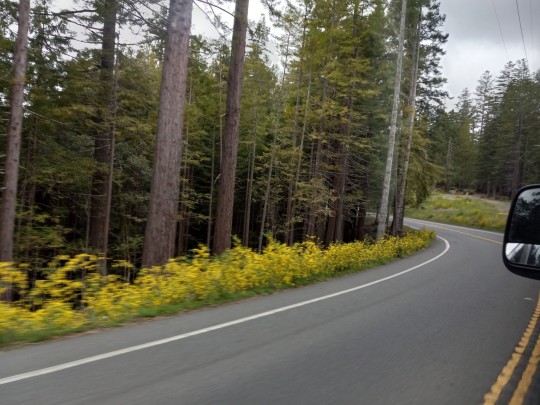
We stopped at Glass Beach:
Glass Beach is a beach adjacent to MacKerricher State Park near Fort Bragg, California, named from a time when it was abundant with sea glass created from years of dumping garbage into an area of coastline near the northern part of the town.



Here I saw six new species of birds. There were Brewer’s blackbirds mobbing the ravens closest to the van. We figured that they’re nesting nearby.
Many of the common gull species in this area are difficult to differentiate, but I was able to get photos that were good enough to ID a couple of them as western gulls. I’m mainly going off of eye, leg, wingtip color. Presence of a gonydeal spot on the lower beak can also narrow it down.
I walked closer to the ocean and spotted a pair of black oystercatchers on one of the larger rocks in the water.
There was also a pigeon guillemot near them. This is the first time I’ve seen an auk. These small seabirds are reminiscent of penguins, though they can fly. For some reason, a lot of fish-eating birds seem to have high contrast black-and-white plumage.
A pair of wandering tattlers were nearby before flying down the beach to a smaller rock in the ocean.
Finally, I saw a pelagic cormorant flying low across the water. These look similar to the double-crested cormorants that I’m familiar with, though they aren’t found inland and have large white rump patches while in breeding plumage.
It became increasingly foggier as we drove up the coast. By the time we entered the forest and stopped at Prairie Creek Redwoods State Park, we couldn’t see the sky at all.
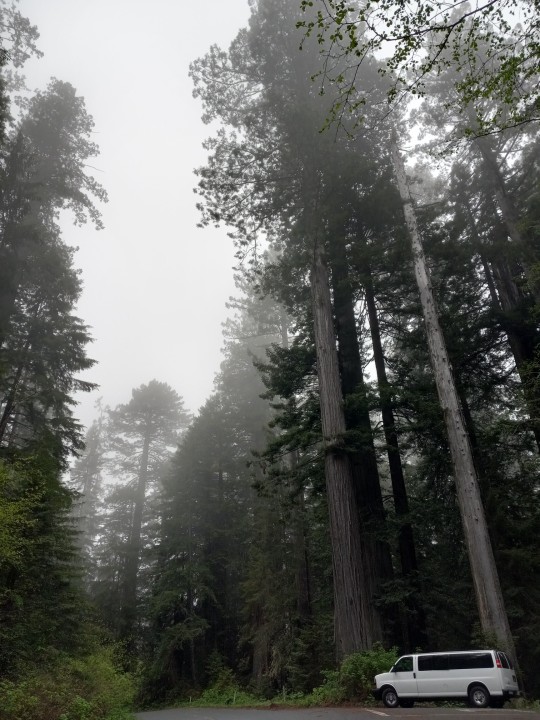
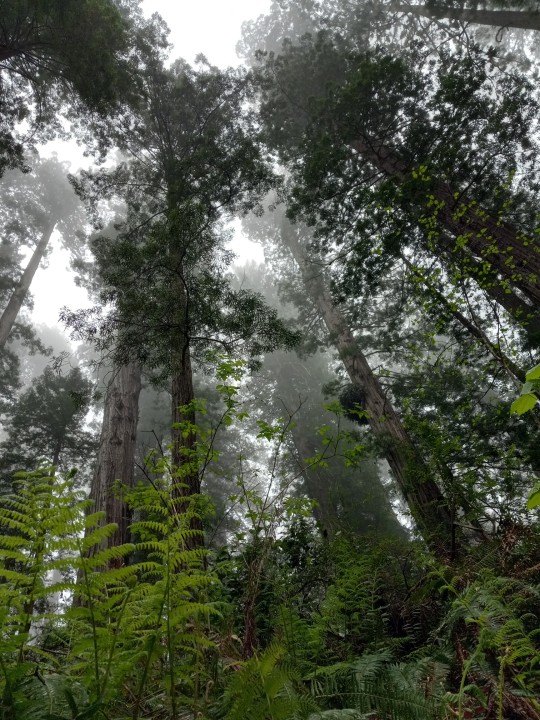
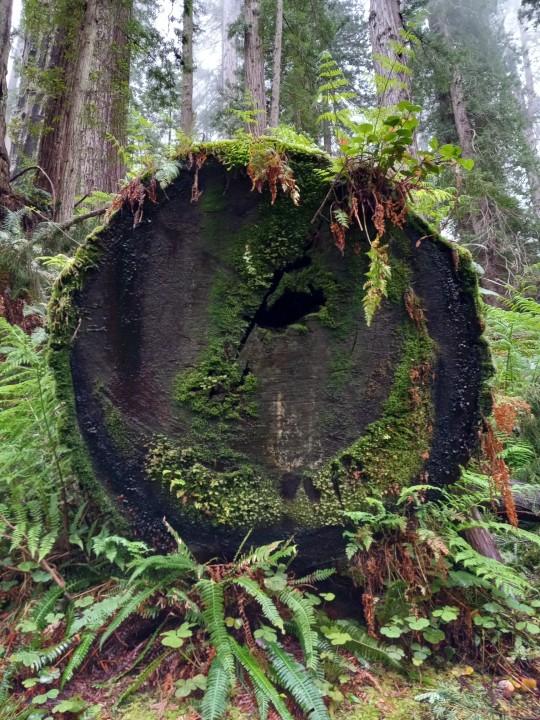
Here I spotted a chestnut-backed chickadee. There was hardly any bird activity otherwise.
We departed and saw some elk! A teammate took this photo for me:
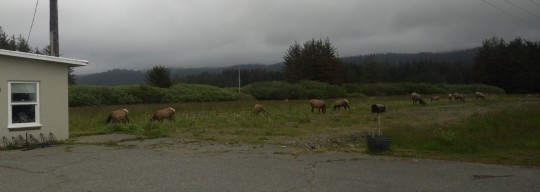
We eventually stopped for dinner with the other team, crossed into Oregon, and completed the drive to the hotel. We arrived a while after sunset.
0 notes
Photo


( via / "thunder: perfect mind, by leonora carrington and andrew wyeth, detailed oil painting" via nightcafe )
In the maze of choices.
"Parliament Hill Fields
On this bald hill the new year hones its edge. Faceless and pale as china The round sky goes on minding its business. Your absence is inconspicuous; Nobody can tell what I lack.
Gulls have threaded the river’s mud bed back To this crest of grass. Inland, they argue, Settling and stirring like blown paper Or the hands of an invalid. The wan Sun manages to strike such tin glints
From the linked ponds that my eyes wince And brim; the city melts like sugar. A crocodile of small girls Knotting and stopping, ill-assorted, in blue uniforms, Opens to swallow me. I’m a stone, a stick,
One child drops a barrette of pink plastic; None of them seem to notice. Their shrill, gravelly gossip’s funneled off. Now silence after silence offers itself. The wind stops my breath like a bandage.
Southward, over Kentish Town, an ashen smudge Swaddles roof and tree. It could be a snowfield or a cloudbank. I suppose it’s pointless to think of you at all. Already your doll grip lets go.
The tumulus, even at noon, guards its black shadow: You know me less constant, Ghost of a leaf, ghost of a bird. I circle the writhen trees. I am too happy. These faithful dark-boughed cypresses
Brood, rooted in their heaped losses. Your cry fades like the cry of a gnat. I lose sight of you on your blind journey, While the heath grass glitters and the spindling rivulets Unspool and spend themselves. My mind runs with them,
Pooling in heel-prints, fumbling pebble and stem. The day empties its images Like a cup or a room. The moon’s crook whitens, Thin as the skin seaming a scar. Now, on the nursery wall,
The blue night plants, the little pale blue hill In your sister’s birthday picture start to glow. The orange pompons, the Egyptian papyrus Light up. Each rabbit-eared Blue shrub behind the glass
Exhales an indigo nimbus, A sort of cellophane balloon. The old dregs, the old difficulties take me to wife. Gulls stiffen to their chill vigil in the drafty half-light; I enter the lit house."
--Plath
Fly Me to the Moon.
"...all the methods and conventions of art today are good for parody only..." --Doktor Faustus
Yggdrasil.
0 notes
Text
Warmth
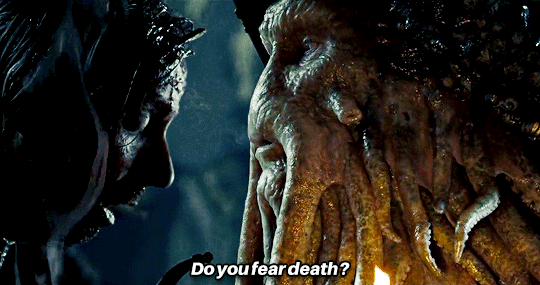

As of yet, this is my first Davy Jones fic. The reader (gender neutral) has known him for years, and ends up aboard the Flying Dutchman after drowning, reuniting them. Unfortunately, Jones isn't exactly the same person as he used to be. Beware, angst ahead.
@emdrabbles @tesserphantom @viper-official @hellspawn-brownies @groovy-lady @wordsinwinters
~3,320 words
~~~~~~~
The last time you’d seen him, his hair had finally lapsed into grey.
The tall grasses waved at the ocean from their position above the beach, fingers grasping your legs and ankles as you walked. Jones was there, under the dark sky, loading up a fishing boat to haul in the morning’s catch. He smiled at you, when he saw you picking your way towards him, barefoot through the shifting sands. There was rain on the air; you could smell it.
It was his smile that caught your eye. Always, his smile. Lopsided, almost tentative, in the way that it didn’t quite know if it belonged but wanted to stay anyways. There was always warmth behind those smiles, even when they were nervous. They reminded you of crackling fires and blankets and hot soup. Comforting things. Homey things.
That was what Jones had been to you. A comfort. A part of home.
You lived in a small house along an empty stretch of beach characterized by its regular gloom. Clouds constantly hung in the sky like overripe fruit. Wind bit at exposed gooseflesh, and mist clouded the vision, the threat of rain always on the horizon. It was what the poets would call a dreary place, with all its grey. You didn’t mind. The lull of the ocean and cry of the gulls made up for the muted colors and chill, though even those were part of your home’s charm.
You were alone there, the two of you, living in small houses not too far apart. The nearest farm sat a few miles inland, and the nearest town farther than that. You were each others’ only company in solitude. It was best that way; neither of you were too keen on the company of others, but sometimes, when the bitter cold set in and the damp crept within your bones, you would find yourselves curled up together, sharing soup and stories in front of fireplaces full of driftwood.
“Leaving me again, are you?” You gazed into the creaking rigging of the fishing boat.
“Not for too long, this time,” he rasped.
You smiled softly, knowing all too well that he couldn’t keep such a promise. He would catch fish for days, and sail down the coast to sell them, bringing back what he could spare. Sometimes, he was gone for months at a time, and you sat inside worrying the ends of your sleeves until he returned. Once, he’d been gone for almost a year. You thought he had died. When he showed up again, white sails on the horizon, and when his feet finally hit solid ground, you had been there to jump into his arms. You’d never quite clung to anyone the way you had him, and though it made you bashful to recall, the knowledge of his safety had left you overwhelmingly thankful.
“Stay safe. And come back.”
“Have I ever not come back?”
“You cannot tame the sea, Jones,” you whispered. “No matter how much you love her.” In a moment of courage, you slipped your hand into his, rubbing your thumb over the top of his weather-worn knuckles.
“I don’t need tame.” He watched your hand at its place on his, never pulling you closer, but never pushing you away. When he raised the back of your hand to his mouth, pressing a light kiss there with chapped lips, your chest felt like it might explode, and the warmth of his mouth at your hand traveled all the way up your arm.
He let go, and you felt the loss acutely. He turned, as he always did, out to sea, making his last preparations before setting off across choppy waters. You would watch, as you always did, until he had passed into the offing and you were alone again.
That was the last time you saw him.
~~~~~~~~~
Ironic how it happened, really. That the sea, which you had lived by for so long, no longer had mercy for you, and opened its maw to swallow you up whole. It was like being Jonah without the whale. Salt accosted your mouth and nose, stinging your eyes each time a wave tried to drag you under. You clung to the bit of wood you had managed to grasp hold of, but you knew it was only a matter of time. You were nowhere near shore, and there would be no help on the open waters.
It had been ten years since Jones disappeared. The first year, you reminded yourself that such a thing had happened before. The second, you weren’t so sure, but you held out hope. The third, you knew he was gone. You left your home, then, to go stay with family in the city, unable to stand the silence and solitude and the empty house next to yours. A storm overwhelmed the boat you’d been on, pulling it under and its passengers with it. You’d managed to escape going under, though you weren’t sure you were faring much better.
Waves buffeted you from all sides. Roaring whitecaps and claps of thunder were deafening, starting a ringing in your ears that you couldn’t shake. Not that you could try very hard. All you could do was cling to the wood, knuckles white against the edges.
A wall of water washed over you, making your fingers slip from their hold. A moment of panic overtook you, but exhaustion soon overcame even the will to live, to fight against the waves, and you sank ever lower, letting the sea fill your mouth and nose and lungs.
When you drown in saltwater, it pulls blood out of the bloodstream and into the lungs. Your own body drowns itself. The sea never kills you: every death at sea is an unconscious suicide.
Someone had told you that once, though your hazy thoughts couldn’t pick out who.
Jones, maybe.
~~~~~~~~~
The creaking of the ship’s wood caught your attention first. Sensation returned to your fingertips and the backs of your legs, telling you of the planks underneath you before you took the willpower to open your eyes.
The space was small, and almost too dimly lit to see. Your eyes adjusted, slowly, to the gloom, and you stretched each part of your body, flexing it from its cramped position on the ground. Something slick found your palm. Seaweed, you realized. The walls were covered in it—it grew on them. You turned to find yourself closed in by bars. They looked almost like the type you might find in a ship’s brig, but the barnacles plastered across the iron made them look a hundred years too old for effective use. If you pressed on them, you felt they might break.
Weakly, you pushed yourself up to a sitting position, immediately cradling your head as the blood rushed from it. Nothing around you moved. You worried the wood beneath you with a finger; where you were, you couldn’t tell. You wondered briefly if you were dead. There were stories about where the soul goes, when it dies at sea. Perhaps you had made it to one of those places.
No daylight found its way into your little prison, only a never-ending dark. Finally, you managed to pace the area, getting up to touch the little creatures that lived in the cell with you. Once, a hermit crab skittered across the floor, and you debated eating it. God, but you hadn’t eaten in so long. When you began to think about it, you found you weren’t even hungry.
The first time the door opened, you were asleep. Sleep was the only way to fight off the oppressive boredom that came with being locked away. You could barely make out the face of the man who stood there, but you watched his wide, scared eyes and listened to his voice, barely above a whisper, and knew wherever you were was not a place you wanted to be.
Sunlight blinded you as you climbed through the hatch and on deck. You closed your eyes against it, missing for a moment the dim of your cell, but thankful for the clean ocean air cycling through your mouth and nose. It was better than the musk of the hull.
It was much better than the salt water.
Your eyes fluttered open. You began to wish they hadn’t. Men worked the deck in front of you in tattered clothing, shaking, walking as if dead across the slimy wood. Some of them were barefoot—younger boys, you noticed, ship’s boys with haunted eyes sunken halfway into their skulls. One looked at you, owlish, and you could have sworn a small crab skittered across his shoulder.
The sea around you was blissfully calm, a stark contrast to the crashing waves you’d almost drowned in. Almost, you thought to yourself. Then, almost? Looking around, you weren’t quite sure you’d survived, after all.
It was the man at the helm that made your heart stop. Oh, his hair was matted and his clothes were torn, he was too thin and his skin had taken on a sickly tint, his eyes were too hard and a starfish stuck to the side of his face, but it was still him.
You recalled that day, jumping into his arms after having thought him dead. It felt so long ago, now.
An emptiness hung in your chest. Not warmth, not relief, but an almost neutral exhaustion. You weren’t angry. You weren’t even sad, really. You were nothing at all. And even through that, through that hollowness, the temptation to press your fingers against the waxy skin of his cheek burned your fingertips.
He saw you, then, staring. For a moment, nothing. Then, almost tentatively, he passed the helm off to some other poor soul.
He climbed down the short ladder between decks. You stood, facing each other, close enough to reach out, to embrace, but still, stiller than marble or masts, stiller than death.
“You didn’t come back.” It wasn’t an accusation, really. More of a statement. A fact.
“No.”
“Why?”
Jones scowled. “It doesn’t matter why.”
You hesitated. He never used to be like this. All noise died in your throat as you contemplated whether or not you should speak. “It matters to me.”
He stared at you then, a brief look of pain replaced almost immediately by coldness. “Don’t let it.”
What happened to him? The reproach stung. As if you could allow yourself not to care for him. As if, after all these years, your heart did not still hold a tenderness for him, a tenderness in the way a bruise was tender, where poking at it only made it hurt more, but you could never stop yourself from touching the purple.
The next few days you spent figuring out how to work on a ship. The men there already had experience, you found, and you looked to them for guidance. Even the young one, the one with the crab, as you had been right in that, tutored you in tying knots. You were a silent group, but sometimes he flashed you a toothy teenaged grin, and you couldn’t help the warmth that created the small smiles you gave in return.
Where Jones’ smiles had gone, you feared you would never find out. The line of his mouth sat in a permanent frown, interrupted only by orders spat at bone-tired sailors. You were reminded of uneaten soups, tepid on the counter, chilling by the minute in your little house by the sea. There had been so many uneaten soups in those last few months. Still a soup, just without any of the warmth. All the ingredients, none of the enjoyment.
It took you another few days to gather the courage to ask the poor owlish boy where exactly you were.
“We’re on the Flying Dutchman, miss. Ferries souls across to the other side, it does.” He frowned. “Or so it’s supposed to.”
“Supposed to?”
“Jones isn’t too fond of the job, as it were. I should’ve just chosen to let myself die. This isn’t really living anyway.” He gestured around at the gaunt figures.
Your eyes passed up to Jones. “No, it’s not. Are we all dead, here?”
“Don’t think Jones is. Not really.” The boy looked at you, eyes scanning your form. “I think you might be, though. You weren’t really breathing when we pulled you from the depths.” The last bit was a whisper, like some sort of secret. You supposed he might be ashamed of being dead, and thought you would be, too.
Ashamed of being dead. Never thought of that one. All that left your mouth was a small “oh”.
The rest of the crew paid you little mind. You did your best to stay out of their way, flitting around like some sort of caged bird, unable to escape the confines of the ship. Jones remained ever-present in your peripheral, almost a phantom fading in and out of your vision. If you touched him, you feared your hand might pass right through. Then again, I’m the ghost.
It explained why you were never hungry, why, though tired, you didn’t actually need to sleep, why your skin was clammy and the tips of your fingers tinged blue. You were sure your lips were, too, though you had no mirror in which to see yourself. Once, you even put a hand to your chest to check for a heartbeat. None was there.
It was during the night, when you wandered instead of sleeping, that you heard it. An organ, echoing through the bowels of the ship, reverberating through the wood as if the ship itself were singing, music curling and twisting and sad, so desperately sad.
You found yourself there, one night, watching from inside the almost cavernous room in which the organ lived. Jones sat there, eyes closed, fingers caressing the keys. Who taught him to play like that?
You stood for what seemed like endless hours, watching, listening.
The music grew soft again. Then, “why are you here?”
You hadn’t even known that Jones was aware of you. You stood in the corner—hovered, you supposed, because could you really do anything a human could?—unsure of what to say. Your hands slipped through each other as you wrung them together, much like Jones used to do, so long ago. “What happened to you?” You were almost certain he would turn you away, but you stayed, no matter how nervous he made you, now. No matter how sad.
Jones sighed. “She betrayed me.” A cracked whisper.
Ah. So there was a woman. It shouldn’t have stung half as much as it did.
“She was wild, and beautiful, and enticing as the waves. She tasked me with this.” Jones’ fingers stilled at the organ. “Once every ten years. That was the agreement. Once every ten years, I could go on land to meet her. And when I went, she wasn’t there.” Jones turned to you. “You were right. I cannot tame the sea.”
You reached out to him then, your chilled fingers glancing every so lightly against his cheek. A bold move, you felt, even after having known him for so long. “Were you always with her, when you were away?”
“Sometimes,” Jones breathed, leaning into the touch. Your hand didn’t pass through him as you’d feared. It rested against his skin. It was warmer than yours, but only just. “She would come to me, up from the waters, a goddess of sea spray. How could I do anything but love her? She was the ocean itself.”
“What was her name?” A very live, very human ache settled in your chest. The more I know her, the more I know him.
“Calypso.”
A name had never been spoken more reverently, you were sure. You wondered, briefly, whether your own name could escape his lips so well loved.
“She was everything a man could want.”
Your throat closed over, at that.
“Water in human form, but always shifting, always flowing. Easy to get lost in.” Jones sucked in a sharp mouthful of air, leaning away from your hand. “But she betrayed me. She tempted me, and left me to rot. Love,” he scoffed, “love is worthing nothing to her.”
“I’m sorry.” It was all you could think to say, even if now, your hand held nothing but empty air.
He stared at you, eyes flinty, an edge of hardness to them that had never been there, before. “Love is worth nothing to me either.”
A test. Would you walk out of the room? Would you believe him?
No.
“I don’t believe that.”
“I don’t have the heart for love.”
“That’s not true.” Your hand had fallen back to your side, itching to reach out again. “You had love, once. Curled up by the fire, eating warm food, laughing, that nervous smile always on your face.” A lifetime ago, it seemed. But it had happened.
Jones shifted, grabbing your hand with one of his own. You flinched, surprised by the contact, and he pulled your hand to his chest, resting it over the space of his heart. The space where his heart should have been. Nothing beat in that empty cavity. His other hand went to the collar of his shirt, unlacing the stained fabric, letting it fall open until you could see the shimmering top of a twisted scar.
“I don’t have the heart.” His voice cracked.
“Oh Jones.” you sighed, twisting the fabric of his shirt beneath your fingers. “What have you done?”
“I didn’t want to feel it. The weight of it. So I cut it out, and hid it from the world. A place where no one will find it.”
I could have kept it for you, your own heart screamed. I could have kept it for you without hurting it. Without hurting you. Instead, a different thought escaped your lips, unbidden. “Did you ever miss me?”
A breathy laugh. “Did I ever miss you.” A statement more than a question. “If I hadn’t, do you think I would have ever come back? Do you think I would have left the sea?” An unstated question: do you think I ever would have left her?
A small smile sat on Jones face, the first you’d seen in years. You wanted to capture it, that moment, save it forever and keep it to yourself, always able to return to that smile, that hesitant smile, still asking permission to be seen ten years later. So you’d had some power over him, some importance over that woman. It shouldn’t have made you so happy, but the feeling tugged at you even so, the relief that Jones had, in fact, cared for you.
“I couldn’t even let you die. I missed you too much to give you the choice. It was selfish of me.” His voice was solemn again.
“Selfish of you to keep me here, selfish of me to wish you home for all those years. Selfish of me to wish, every time you sailed away, that you’d never left.”
“Why did you never tell me?”
“I couldn’t form the words.” Doubt overtook you, then. “Would I have been enough? Would solid ground and human flesh have been enough for you? I’m no deity.”
“No,” Jones whispered. “You’re no deity. You’re kinder, gentler.” His eyes had lost their sharpness, finally, and he looked more like the man you were so used to. “Even seeing me now, you haven’t tried to leave me.”
“Leave you? After all these years spent longing?”
“We’ve both served our decade of lost love, haven’t we?” One of Jones’ hands brushed against your cheek, the pad of his thumb resting just at the curve of your jaw.
“Yes. Let’s go get your heart back. I think you might need it.”
Jones only smiled, melancholy music forgotten, and finally, finally, you felt some warmth in your fingertips.
220 notes
·
View notes
Text
@ikkaku-of-heart ok bet
He’d been wandering almost aimlessly now, straying away from densely populated villages for fear that he would be hunted the moment his curse was known. While his crucibles helmet shielded his eyes from view, it was a rather flimsy means of staying hidden and rather distressing on his body given the weight of his knights armor now chipped and worn from the elements.
The scent of the salty breeze let him know that at the very least he was close to the ocean and perhaps in interest of seeing the tides push and pull with the forces of nature, the banished knight trudges on in the direction with which he had seen gulls fly towards. Somewhere in the back of his mind he thought to himself how much more efficient his travels were if he only gave in and took a steed for himself to ride upon.
by the time he makes it to the gulf he is met with a curious sight. It appeared to him that there was a scuffle going on upon the ship steered close to shore and rocking gently in the shallow waters. As he steps ever so closer he can make out a wriggling figure caught within a net that men were struggling to pull over the edge of the deck. It is only when a grand tail smacks the face of an assailant and a glimpse of curls through the fishnet that he realizes it is a mermaid was caught and a feisty one at that.
Drake wasn’t well versed in Fishfolk societies nor their culture given how inland his kingdom was but he had heard grand stories that drew countless fishermen to the sea to capture these mystical creatures.
Even if their reputation varied into bloodthirst and maneating, he wasn’t going to just stand around and watch as one was captured to have god knows what done to it.
Sliding his heavy sword out of it’s sheathe, Drake approached the ship as quietly as his heft armor could manage. Slit eyes narrowed as he took in the scene and hoping to distract the men from potentially harpooning the writhing mermaid he called out.
“ I see you’ve caught something quite rare, mind telling a wandering old knight what you plan on doing with such a creature?”
8 notes
·
View notes
Text

Alan Watts, Love of Waters.
«Do you mind if I talk for a while about something I love? About water and the ocean. Ever since I can remember anything at all. The light, the smell. The sound and motion of the sea has been pure magic. Even the mere intimation of its presence, gulls flying a little way inland. The quality of light in the sky beyond hills which screen it from view. The lowing of fog horns in the night. And if ever I have to get away from it all, and in the words of a Chinese poet, wash all the wrongs of life from my pores, there’s simply nothing better than to climb out onto a rock and sit for hours with nothing in sight but sea and sky. Although the rhythm of the waves beats a kind of time, it’s not clock or calendar time. It has no urgency. It’s timeless time because I know I’m listening to a rhythm which has been just the same for millions of years. And it takes you out of the world of relentlessly ticking clocks. Clocks for some reason or other always seem to be marching. And armies never march to anything but doom. But there’s no marching rhythm in the motion of waves. It harmonizes with the breath. It does not count our days. Its pulse is not in the stingy spirit of measuring marking out how much still remains. It’s the breathing of eternity, like the Brahma of Indian mythology, who inhales and exhales manifests and dissolves the worlds endlessly forever.»
(via zoeflake)
12 notes
·
View notes